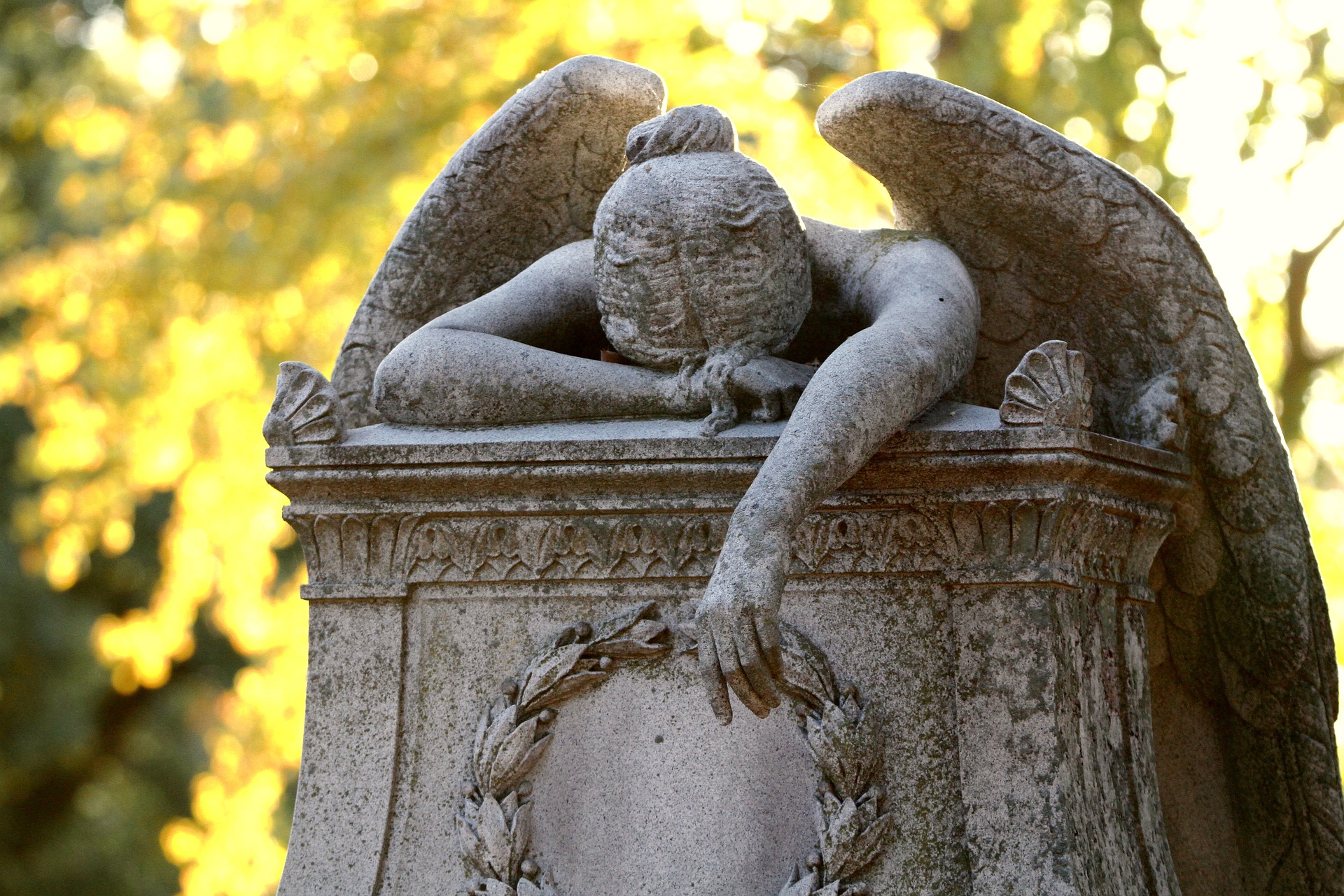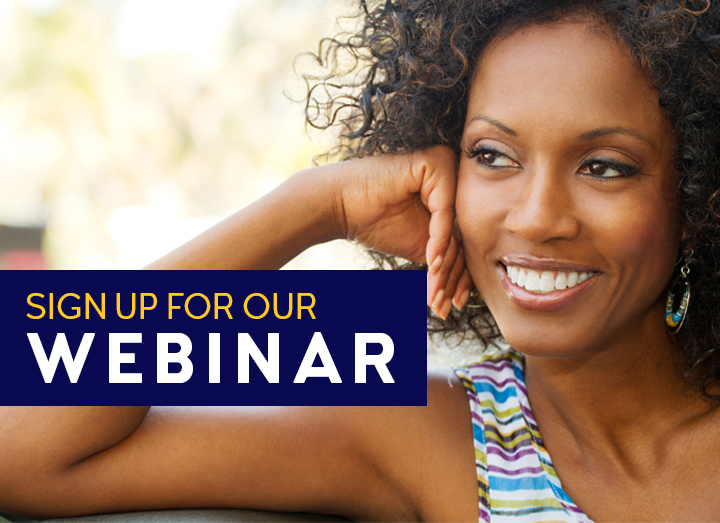 Four years ago today was a pretty shitty day. It started innocently enough, as shitty days sometimes do. My sister had called the day before telling me that our mom, who’d been sick for a while, had started what the doctors described as ‘the beginning of the end.’ My sister lives in Florida, and my Mom and Step-Dad lived about an hour and a half north of where she lives. As a natural result, the bulk of caregiving during the last few years had fallen primarily to my sister—no small burden with two small kids and a mother with cancer. The business of death and dying is rarely easy.
Four years ago today was a pretty shitty day. It started innocently enough, as shitty days sometimes do. My sister had called the day before telling me that our mom, who’d been sick for a while, had started what the doctors described as ‘the beginning of the end.’ My sister lives in Florida, and my Mom and Step-Dad lived about an hour and a half north of where she lives. As a natural result, the bulk of caregiving during the last few years had fallen primarily to my sister—no small burden with two small kids and a mother with cancer. The business of death and dying is rarely easy.
I got the call, booked a flight, told my family that I was leaving to help take care of Mom, and that I would be back when I was back.
My girls were in second grade and were getting ready for their annual Father Daughter dance, which was being held two days hence. To complicate matters, we were hosting a pre-dance dinner party for their entire class at our house. None of that mattered, I was out. Family stepped in, friends stepped in, they were amazing and I will always be grateful to them. As for me, I wasn’t thinking about anything but getting to Florida that next day.
I fully expected to be gone for a number of weeks—or longer and was grateful once again to have a job that allows me to do what I want, when I want, and to work from anywhere. More importantly, I was grateful for the chance to spend whatever time I had with Mom because I hadn’t seen her in a few years and to make up for the fact that I suck ass as a daughter. Little did I know that dying doesn’t always happen how and when you expect it.
How We Got Here—The Diagnosis
I’ll back up. My mom was diagnosed with myelodysplastic syndrome (MDS)—a type of bone marrow disease about seven years ago. In case you’ve never heard of MDS, don’t worry, you’re not alone. Although if you remember when Good Morning America’s Robin Roberts had some bad kind of cancer after already managing to beat breast cancer, MDS was it. MDS is a tricky bastard of a disease. It’s also called “pre-leukemia” and it’s basically a group of conditions where blood cells don’t reach a mature state, staying in the bone marrow. As with most cancers, when the number of these bad cells outnumber the good cells, problems happen. The way the disease manifested in Mom meant that she suffered from severe anemia, weakness, and needed frequent and regular blood transfusions.
When you get an MDS diagnosis, it’s not good. For folks with lower-risk types, the life expectancy after diagnosis can sometimes be up to five years. With higher-risk types, chances are good you’re going to develop full on leukemia (acute myeloid leukemia to be exact) and of course the outcome isn’t as, errrr, rosy. What your docs are on the lookout for when you have MDS is leukemia, as the threat of that is always around the corner. About 30 in 100 patients with MDS eventually get leukemia. That’s what ultimately happened to my Mom—the leukemia showed up.
The Dysfunction and a Reminder: All Families Are Effed Up
When we think about the dysfunction within our own families, sometimes we mistakenly think our family is the most messed up of all. Or we think that there’s no way other families are as effed up as ours are. That would be incorrect. My mom and I had a complicated relationship at times, but we loved one another as mothers and daughters do. I spent most of my life living across the country from her, raising my own kids, navigating much of life as a single mom, and staying in touch, but mostly doing a shitty job of it.
The similarities in our life paths, the choices we made, the obstacles we faced, and our attitudes about those things has always amused me. Even though I grew up living across the country from her, we are more alike than not in a myriad of ways. Like me, Mom raised two separate crops of children, and that sometimes got in the way of us paying as much attention to one another as we might otherwise have liked. Distance, distractions, little things like being poor, working on building careers, and raising kids—you know the drill—can often get in the way of all of us and our good intentions more often than not. Sometime they got in Mom’s way, and others in mine, but life often got in the way of us spending as much time as we might’ve liked with one another. There were also some full on periods of crazy over the years, which admittedly runs in my family. When you combine crazy with a long history of stubborn German and Irish genes and a resolute commitment to never, ever, no matter what, no way, no how talk about things that piss you off or bother you (her, not me), well, let’s say it didn’t set the stage for easy conflict resolution. Nevertheless, there was love. A lot of love.
The dysfunction wasn’t limited to me. In fact, my brother won that one hands down. Mom was long estranged from him—his choice, not hers—and while my sisters and I had tried for years to help mend that breach, my brother wasn’t much interested in making an effort. He’s neat that way. The one thing I managed to accomplish the day I got that call from my sister is that when I called my brother and told him that she was dying, he agreed to come to Florida.
So We Got There
I landed at the Fort Lauderdale airport at about 1:30 pm the afternoon of Wednesday, January 14th, and my brother’s flight arrived about thirty minutes later. We were both starving, and we weren’t in any hurry, so we grabbed some Chipotle in some town nearby (funny the ridiculous things you remember about really shitty days), caught up on the years that had flown by, and headed north to Mom and Dad’s. Midway through the drive, my other sister, the oncology nurse, who had arrived earlier in the day from New York, called and gently asked us to hurry up. They were trying to hold off on administering some pain meds until we arrived. All of a sudden things sounded a lot more serious, and we quickly picked up the pace, but we still weren’t overly alarmed.
We arrived and greeted my sisters and my Dad, and then went in to see Mom. When you’ve never seen someone waste away from cancer, well, there’s really nothing like it. Nor is there anything that’s much more surreal than knowing that you’re standing at someone’s deathbed. When it’s your parent’s, even more surreal. My already tiny Mom, in her last days was but a wisp of her former self. But she was there, and alive, and being cared for by an amazing hospice worker. But seriously, that sucked. That vision of my Mother, at that moment, will forever be etched in my memory.
What You Learn from Hospice Angels
Arriving at what I thought was my Mom’s sickbed but which quickly ended up being her deathbed was kind of like learning to speed read—only it was really learning to speed die. The hospice worker on duty that day was nothing less than a godsend. Although I’m pretty sure that’s a word that could be used for most hospice workers. What an amazing gift it must be, to support and care for terminally ill people and their families. The gift of shepherding them through the process of dying and losing a loved one is a priceless one. I don’t even remember that angel’s name in the blur that was that day, but I remember that he gently explained to all of us what was happening, and how it would happen, and that even though she might not be able to speak to us, she could probably hear us and knew that we were there. He taught a crash course in dying, and how to talk with our dying Mom that made every part of the experience better than it might have otherwise been. I will carry those lessons and that knowledge with me forever, and hope that I can use it in some way, at some point, to help make someone else’s loss easier.
And Then She Was Gone
I got on a plane at 8:30 am that morning and thought I was in for a long haul. Weeks, for sure. Maybe even months. But I was looking forward to it in a sick kind of way. I was looking forward to reconnecting with my Mom, taking some of the burden off of my sisters, saying a gazillion things I wished I’d made time to say earlier, making up for rarely managing to find time to come visit, and just spending time and talking with her during those last days.
I was mistaken. I had zero time.
I’m pretty sure my Mom was waiting for us to all get there, especially my brother, her only boy, and long her favorite of us all, to arrive, so that she could fucking let go. At 9:05 pm that night, she did. In the morning, she was there and I was flying across the country to help care for her, and that evening, she was gone. Four years later it still surprises the hell out of me that it happened that goddamn quickly. Before I could even get my head around it, she was gone.
What I Learned When My Mom Died
The reality of life is that your people are going to die. If you’re lucky, parents die before kids do. If you’re luckier, your parents live long, reasonably healthy lives, as do your kids. If you’re luckier, your parents die from old age and you get a chance to spend all the time with them you’d like, make amends for old grievances, say all the shit you want to say, and all those things. Unfortunately, death is more often than not not at all that neatly organized. More often than not, death surprises the shit out of you and turns out to be a real motherf*cker.
I knew my Mom was going to die. Cancer pretty much always wins. At least that kind of cancer. I was also pretty sure I knew how she was going to die I just didn’t expect it to be that soon. Or that day. But going through that experience taught me some pretty cool things. I know, I’m a freak, but it’s my nature to always look for the good, even in shitty days and shittier experiences.
So, in no particular order of importance, here’s what I learned when my Mom died—
I learned about what to expect when dying is imminent and what to do, what to say, how to let them know it’s okay to let go.
I learned that being cremated sounds a tidy solution to a messy problem, but after a lifetime of thinking that’s what I’d want, when faced with the reality of cremation, I realized it was not, after all, for me.
I learned that even though it might sound gross, when someone you love is cremated, there’s an option to buy mini urns and to split up their ashes into multiple containers. I wanted to do this and my sisters thought it was kind of creepy. We did it anyway. There are benefits to being the oldest—you are good at bossing. My Dad got the big urn, and we each got a little one. My sister took forever to mail me mine and in the way that life often delivers up just what you need, just when you need it, mine arrived a few months after my Mother died, on goddamn Mother’s Day weekend. Just when you think you’ve cried all you can freaking cry, life shows you that you’re not really in charge at all. That header image up top is my mini urn with Mom’s ashes in it. It sits on a shelf in my office, and it’s not at all creepy—in fact, I like it a lot.
I learned that parents who decide not to have any kind of a funeral service or a memorial f*ck their children way up. It was what she wanted and that is of course her choice and, when you’re the dead one, what you want is what goes. But to not have a funeral or a memorial service or any kind of anything after she was gone made it sorta kinda like my Mom didn’t even exist. I’m still not over that shit. Even if you’re the most private of private people, let your kids or your family have something—some kind of occasion where they can invite friends and family, where they can stand up and talk about how freaking amazing you were, and where they can share their hearts with others who loved you and where they can celebrate your life. To deprive them of that is a big damn deal. I’m still pissed about this, Mom. And I’m going to be until I die, so deal with it.
I learned that for me, the best way to deal with difficult shit is to rely on my morbid sense of humor. It freaks people out, but I don’t care. My Dead Mom understands.
I learned that going through her stuff—the closet, the drawers, everything she touched every day, smelling her smell, and having all those cascading memories practically crashing the server that is your brain is probably the hardest goddamn thing in the entire universe. But as terrible as it is, it’s also pretty cool. You feel things at a level, at the most base, guttural level, and while it hurts like crazy, it also makes you feel like never before that amazing love that you have for that person.
I learned that the moments and the days after someone you love dies, when you sit around with your siblings and your Dad, or whomever else is part of your personal equation, and you cry your damn eyes out but you also share and laugh and reminisce (and sometimes drink), and then cry up a bunch more, is one of the most wonderful life experiences ever.
I learned that when someone dies, especially when it’s a parent, you kind of drift into kind of a fog. Even though you get back to your life, your kids, your family, your routine, and your obligations—all that shit, you’re just in a big-assed fog. The fog lifts over time, but there’s no telling really how long it will last. And sometimes it goes away, then comes back. Roll with it, it’s normal. Don’t try to rush back to whatever your “normal” was before this happened, just let go and go with it.
Losing a parent sucks but it changes you for the better. When you finally lose a parent, you get a gift that you would have never seen coming. The gift is empathy. Not empathy as in “I’m sorry about your loss and I’m here for you with a casserole.” No, this is the “Damn straight I know how you’re feeling and that your heart feels f*cking ripped out of your chest and even breathing seems impossible on some days and this is the worst shit ever” empathy. You finally know what it is your friends are going through when it happens to them. So instead of thinking about how much it sucks to lose a parent, and trying to say all the right things, you freaking KNOW how much it sucks to lose a parent, and while you can’t make their loss any easier, the fact that you’ve walked this journey makes all the difference in the world in how you react and respond to them when they need you most. For me, that has been a huge gift.
Something Else You Learn—Pull Your Head Out and Do It, Now
Here’s tangible proof on that front of what losing a parent can do for you—and it’s the gift of being able to use your own mistakes as an example for others not to follow. Here’s one of mine. A longtime friend reached out a few weeks ago to say hi and catch up. He’d flown into Kansas City this past summer for business and we got together for dinner, having not seen one another in fifteen years or so. In the midst of catching up, I asked about his mom, who had been living in Chicago when I knew her. He said that she was still in Chicago and not at all interested in him moving her to Omaha, where he and his family have now lived for at least a decade.
When he texted me last week, he told me that his mom had passed away over the Christmas holidays. And that based on his conversations with me in September, and at my urging (which I’m sure was subtle) (I am nothing if not subtle), that he’d moved her to Omaha shortly thereafter. He said he would be forever grateful for those six months he got to spend with her living nearby and for the chance his daughters got to know their grandmother more. To my surprise, he told me that our conversation over dinner that night was what pushed him to insist she make the move to Omaha—and she did.
Losing a parent teaches you what not to do. You don’t know what you don’t know—until you know. And once you know what it’s like to regret that you were too far away, too busy, too preoccupied, too everything to spend time with your parent who most definitely won’t be around forever, hopefully you can prevent others from making that same mistake. Knowing that I played some small role for my friend and his mother in that way was a great gift—for me as much as it was for him.
It’s also a reality check to do a better job with your remaining parent or parents, and to treasure every damn second with them that you can.
The death of a parent changes you. You realize there are no do-overs and that all the silly crap we sometimes hang onto is so ridiculous and meaningless in the big scheme of things, and the excuses we dream up for not making more of an effort are just that, dumb excuses. You realize that the only thing that really matters is time, and the moments you can spend with one another. And you realize that nothing else matters. If you happen to mess that up for your own self, then sometimes, if you’re lucky, you get to help keep someone else from doing that. Or you get to help them through one of the hardest phases in life. Either way, you still win when it comes to being a human. And that’s what losing a parent will teach you. How to be a better human. How to be a better parent. How to be a better kid. How to be a better friend.
My Mom was an amazing woman. She taught me so much of what I know and I see her in me every single day. The goofy, pragmatic, independent, resilient, talk-to-anyone part of my personality I got from her. I got my shape, my shitty eyesight, and my opposite of statuesque height from her. I also got her hands, so every time I look at my own hands, I see hers.
She’s given me a lot of gifts over the years, some tangible and most not. The greatest gift she gave me was teaching me to be a survivor, which was her life goal for all of her four children. She was a scrapper, and she lived her whole life working her ass off, and sacrificing everything that might have been important to her for the sake of us four kids. It was important to her that all of us be able to survive, no matter what life threw at us, and it made her proud to no end when she saw that she had accomplished that, four times over.
The second greatest gift Mom gave me was a tangible one—she sent me a birthday card in April of 2013, from The Dollar Store, of course (her favorite). It would prove to be the last birthday card she would ever send me, and I’m pretty sure she knew that. Inside, amongst the stock HBD greeting in the card, she wrote simply:
“Dear Shelly,
Just keep kicking ass.
Love, Mom”
I sometimes made the mistake of thinking my Mom was kind of oblivious to the goings on in my life. And in that last card, she did what moms do—she reminded me that she’d been paying attention all along. While I don’t miss her any less as time goes by, January 15th is always a day I spend thinking of her more than usual. I don’t cry, I smile, because I know she’d much prefer that I spend my time thinking of the good things, and the good times, instead of about the sad things. So here’s to my amazing Mom, and the life she lived. She was amazing in every way, and I’m so glad to have been her kid. And don’t be sad for me today if you read this. Be happy that I was lucky enough to get her as a Mom. That’s what I’m doing.
Here’s Mom when she was young and raising crop number one of children, and yes, that’s me in the dashing orange coat. I was hot even then.
Here’s Mom at arguably one of her proudest moments, when my brother graduated from college.

Here’s Mom when she was happiest, hanging out with her sister, Adrienne, in some tropical paradise somewhere.

Mom raised four kids and had six grandchildren. She thought she was badass because she had her first grandchild at 38 and a second the year she turned 40—thanks to me. She thought that was amazing. She couldn’t wait to have amazing gray hair, and was so happy when she finally got it. She made it through a whole lot of unhappy years, but managed to spend the last six years of her life madly in love with my Dad, her best friend when they weren’t mad at one another, living in a beautiful house in Florida and doing all the things (finally) she’d ever wanted to do, and seeing her grandkids who lived nearby as much as possible. She lived long enough to see her only grandson grow into a delightful young man and also long enough to see the birth of her fifth granddaughter, which was wonderful for both her and for and my sister.
If you made it this far, thanks for indulging me as I reminisce about and celebrate my amazing Mom. If you’ve lost a parent, you know what the anniversary of their death feels like. If you haven’t, it will suck, but you’ll eventually be fine. Really and truly, you’ll be fine. You’ll never stop missing them. You’ll never stop being sad. You’ll never stop remembering. But you’ll be fine.
As an aside, I happened upon this glossary on How to Speak Grief, which is very much a language all its own, in the Sunday Review section of this weekend’s New York Times. Adapted from the book Modern Loss, by Rebecca Soffer and Gabriell Birkner, it might be something to put on your list.
- Sesame Beef and Broccoli Recipe - March 16, 2020
- Easy and Best Strawberry Biscuit Recipe - March 15, 2020
- Carb Confusion is Real. Are Carbs Evil? Let’s Do Some Myth-Busting - January 14, 2019









